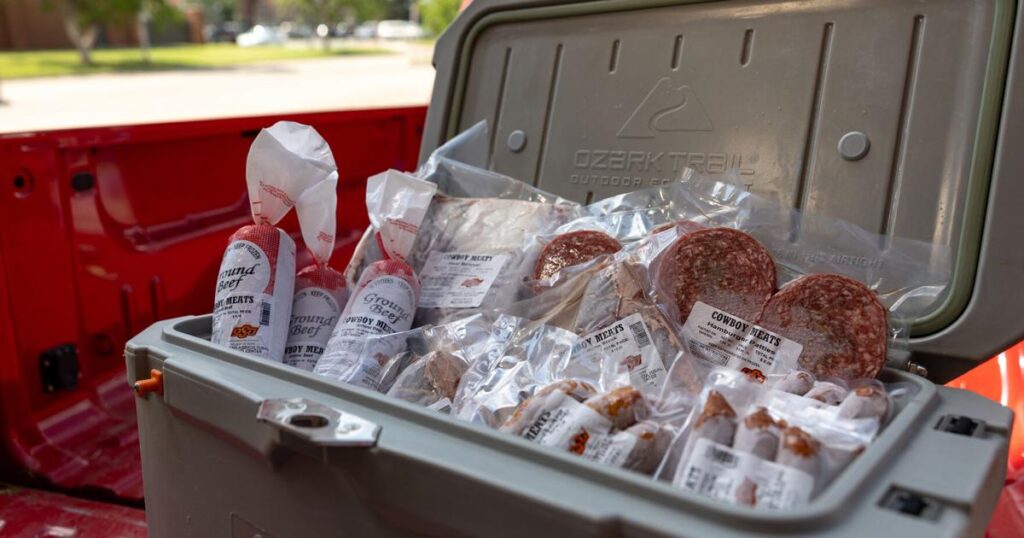Summer is a fun season full of outdoor activities like swimming, cycling, firefly hunting, etc. It is also the season for picnics and barbecues, where safety is paramount to avoid health risks.
Kristy Evans, assistant food safety specialist with Oklahoma State University Extension, said it's important to keep cold foods cold while transporting them to the picnic or barbecue venue, and to prepare them before you leave the house: If burgers are on the menu, make ground beef or turkey patties ahead of time.
“Stock your cooler with plenty of ice or frozen gel packs. Cold foods should be stored at 40 degrees Fahrenheit or below to prevent bacterial growth,” Evans says. “Typically, perishable foods should not be left out at room temperature for more than two hours, but in the heat of an Oklahoma summer, that time is cut in half.”
On hot summer days, everyone needs plenty of cold drinks. Have separate coolers for food and drinks. This way, you can open the cooler frequently and prevent perishable foods from being exposed to high temperatures.
Evans suggests keeping an appliance thermometer in your food cooler to take the guesswork out of determining whether your potato salad or deviled eggs are staying below 40 degrees Fahrenheit and safe to eat.
“When packing your cooler, keep raw meat, poultry and seafood separate from cooked foods you're preparing for the barbecue. This will help prevent cross-contamination,” she says.
Food safety is important, but so is cleanliness: Evans suggests bringing extra water, soap, and paper towels for a dedicated hand-washing station. Disposable wipes are also an option.
“When you arrive at a barbecue or picnic, make sure your hands are clean before touching any food,” she says.
Cooking meat to the proper internal temperature is an important part of preventing foodborne illness, according to Ravi Jadeja, a food safety expert at Ohio State University's Robert M. Carr Food and Produce Center.
“It's always a good idea to use a food thermometer to make sure meat is completely cooked to a safe temperature,” he says. “If grill space is limited and you're cooking meat in stages, use disposable chafing dishes to keep hot foods above 140 degrees Fahrenheit. At the very least, wrap cooked foods tightly in foil and keep them near the grill. Try to serve cooked foods immediately.”
To be safe to eat, meat should be cooked to the following temperatures (in degrees Fahrenheit):
Beef, pork, lamb, veal: 145 F (rest 3 minutes before serving)
Minced meat: 160 F
Chicken: 165°F
“When removing meat or poultry from the grill or smoker, always use a clean plate to prevent the spread of bacteria,” Jediya says. “Also, discard any marinade from leftover meat. Don't use the marinade as a dipping sauce, as the juices may contain bacteria and may not be safe to eat.”
Food remains safe after it has been cooked, and consumers should return all leftover food to the cooler within one hour of cooking, and ideally as soon as everyone has finished eating.
“Summer is the perfect time to head to the lake, camp, or even have a barbecue in your own backyard,” Jadeja says. “Following proper food handling and safety tips will keep you safe as well as having fun.”
OSU Extension provides additional food safety information online .
OSU Extension uses research-based information to help all Oklahomans solve local problems and concerns, promote leadership and wisely manage resources throughout the state's 77 counties, and much of the information is available at little or no cost.



